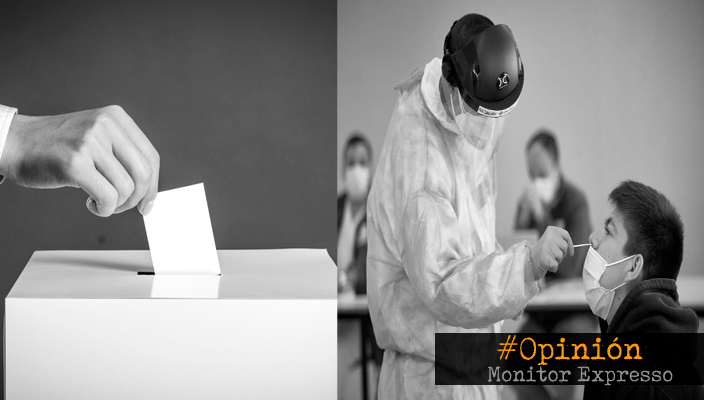
In the face of the June elections, Mexicans have three major concerns: health, security and the economy. The latter is intimately connected with internal variables, in particular with the impact of the implementation of the reforms, but it is also subject to factors outside Mexico and that we can hardly control, such as the pandemic.
If we neglect in this spring of 2021 of the Covid 19 era, we will have ahead of us a long phase of very low economic growth that would keep us in a situation, globally and nationally, of “secular stagnation”, a term first introduced by the jargon of economists by Alvin Harvey Hansen, Keynes’ disciple.
The problem today is that we are recovering, not only from great personal tragedies, from emotional shock, but also from a negative aggregate supply shock. And before us are the growing inequalities of income and wealth, which keep alive the populist national threat to a democracy in crisis, with its institutions under attack.
The aftermath of the global pandemic crisis, which we are barely leaving at the end of 2022, are there, magnified by human, labor and social costs, the result of poor, poor management of expectations created by mass vaccination, fuelled by mistrust and uncertainty, not just public health policies , but also on the ability to keep the social fabric united in a period of economic stagnation.
Some even talk about “stagflation,” that is, that current economic conditions allow for a combination of stagnation and inflation.
The truth is that the pandemic (and, this will last for the post-pandemic period) has brought in its tsunami, deglobalization and increasing protectionism. To these we will have to add bottlenecks in the post-pandemic offer; tectonic frictions between the U.S. And China (the Sino-American Cold War), and the consequent Balkanization of global supply chains. Mexico is not, and cannot be, in a bubble. It raises each of the impacts, staggers with each of the consequences.
You may be interested: 39 percent of schools do not yet have drinking water: CNTE Michoacán
Faced with this alarming situation of social, psychological and economic crisis, and despite the social fear of technology, technological innovation in robotics, artificial intelligence, machine learning, etc., could be the elements necessary for an exit from the crisis and, building a new economic system, with new industrial relations and, redistribution of resources.
They would provide, for example, technological solutions that eliminate the risks of physical migrations and increase the value of work (for example: a programmer in Morelia, does not have to move to Silicon Valley to design an app in the United States). They would secure and strengthen learning networks. They would eliminate production and distribution bottlenecks. They would allow, including the creation of the conditions of wealth accumulation, which are legally framed in the principles of justice and equity, would ensure the necessary programmes for redistributive justice and general access to resources (e.g., one such programme would be universal performance).
I mean, we should be thinking about future changes and not a past that’s an ideological illusion. Only then can we take advantage of the crisis and transform it into a catalyst for change.
Scientific-technological changes – politicians who can create a social vision, a political will and, a strategic front against climate change (a crisis that is already present and, with conditions as or more devastating than the pandemic).
The problem is that these issues are absent from public debate, candidate programmes (if any) and national public policies.
We might be thinking about a future that’s already present, but we’re not doing it. In fact it is a future absent from political campaigns made and starring characters from the past, many of them still living in an image of the world out of the “Law of Herod”.
This is not a political – electoral “hope” situation, this is a very serious situation that is transforming voters and political actors into political zombies, literally “walking dead”. With an uncertain future.
The opinions expressed in the columns are the sole responsibility of those who subscribe to them and do not necessarily represent the thinking or editorial line of Monitor Expresso
"El reclamo puede ser genuino, pero construido sobre una mentira", apuntó el presidente Javier Milei…
El gobernador de la provincia de Buenos Aires, Axel Kicillof, encabezó un acto en Ensenada…
El diputado nacional de La Libertad Avanza, José Luis Espert, expresó su confianza en la…
Tras la masiva reaparición de Cristina Fernández de Kirchner, el presidente Javier Milei apuntó contra…
El principal propósito de la nueva comisión es evaluar los recursos humanos en el Senado,…
En una medida que busca redefinir las condiciones de los seguros de automóviles en Argentina,…
Esta web usa cookies.